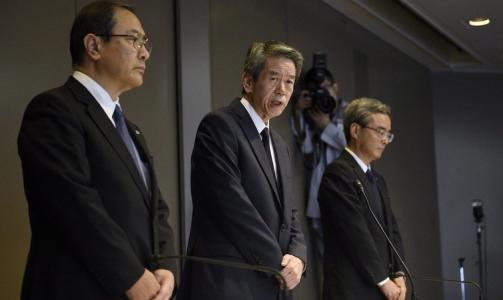According to foreign media reports, a number of recent security scandals have exposed the Japanese auto industry. Due to the sluggish auto market in Japan and the competitive pressures from South Korean and Chinese auto makers, the profits of Japanese auto companies have been squeezed severely. Many Japanese companies started to employ short-term contract workers, temporary workers, or part-time workers to replace regular employees in order to reduce costs. The above situation caused a safety scandal in the Japanese automotive industry. The replacement of skilled workers and full-time employees with formal contracts is relatively complicated, and Japan has adopted qualifications to assess the salary standards since World War II. The above phenomenon has increased the burden on companies, and many companies have turned to short-term contracts, temporary workers or part-time workers to replace the permanent employees of long-term contracts and even life-time contracts. Koji Morioka, emeritus professor at Kansai University, said that the introduction of informal employees can reduce costs in the short term. However, the problem is that their skills are not skilled, which reduces the product quality standards and increases the illegal activities and the possibility of accidents. Excessive use of temporary staff and the constant loss of experienced and skilled regular employees has increased the risk of product quality. The proportion of non-regular employees has increased from 20% in 1990 to 37.5% in 2016. Some factories have a higher share. The pay gap between the two is obvious. In 2016, the average monthly salary was 321,700 yen (2830 U.S. dollars) for the official month, and 211,800 yen for the non-regular workers. Parissa Haghirian, professor at Tokyo Sophia University, said that Japanese companies have not developed experienced and skilled workers in fields such as quality and safety, resulting in frequent quality and safety problems. Moreover, the quality inspection standards are now becoming more and more stringent. Once mistakes are made, they will have a huge impact. The personnel system is indeed a big problem. In the past, the personnel system recruited employees directly from universities, trained them, and then rotated among departments. Reflection Haghirian said that the shortage of labor resources in the Japanese automotive industry has reached a historic high in 25 years. Some companies need experts but they cannot train themselves within the company. Skilled workers are becoming scarce. I predict that there will be fewer and fewer technologists, which will cause the company to suffer. Because the factory usually rely on these technical experts to drive around the staff together. According to insiders, some Japanese car manufacturers hold this attitude, as long as the factory is running well, quality control and testing can be used as a secondary link. Therefore, the most skilled personnel were not arranged for quality inspection. Some companies have a long history of quality problems, some even as long as several decades. Refusal to provide employees with tenure contracts reduces employee loyalty, and they are more willing to consider their own interests than corporate interests. Japanese Prime Minister Shinzo Abe formulated a reform plan for corporate governance. The core of the plan is to increase corporate transparency by increasing the number of externally hired directors. However, experts questioned this move. An executive in the aluminum industry said that even if there are more external directors, if there are frauds within the factory, they will not know. Corporate executives simply do not know the details of the internal affairs of the factory. Toshiyuki Shimegi, president of Porsche Japan, said that corporate executives have neglected the responsibility of managing factory operations. JIANGYIN CHUANGJIA ELECTRICAL CO.,LTD , https://www.siliconsteelcore.com